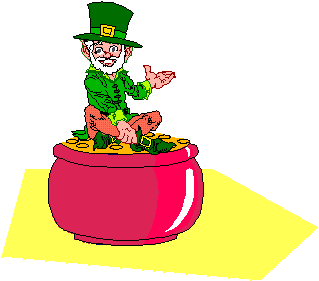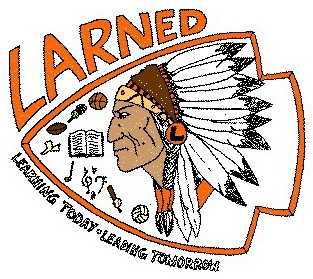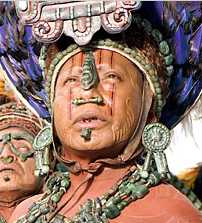So what I'm getting at is I'd appreciate an explanation why cultural appropriation of the Irish is perfectly acceptable and that of native Americans is not.
Fighting Sioux vs. Fighting Irish
Short answer is that the Irish have been in the mainstream and among the power elite for a century or so. The stereotypes have lost their power because of the widespread acceptance of the Irish.
When Indians become US presidents, Supreme Court justices, CEOs, movie stars, Nobel Prize winners, etc., then we won't have to worry about stereotypes so much. Why not? Because seeing real, live, modern Indians in everyday situations will counteract the harm from stereotypes. Which is what happened with the Irish about a century ago.
Still if some cultural appropriation is racist and other cultural appropriation is not, what is the difference. Is there a principle distinguishing the two that can be distinguished clearly?

Looking for principles
First principle is that the Irish aren't complaining about cultural appropriation. If they were, I think we'd respect their opinion.
Incidentally, it's not the appropriation of Indian imagery that warrants the word "racist." It's the fact that the appropriators haven't appropriated other ethnic cultures and wouldn't think of doing so. They've singled out Indians for the primitive/savage/uncivilized treatment.
If you wore beads, bangles, belts, shoes, hats, scarves, etc. from a dozen cultures, you'd be "appropriating" them all but you wouldn't be singling anyone out. When you dress up like a stereotypical savage Indian but won't dress up like a stereotypical Zulu spearchucker, you're singling Indians out. That's discrimination based on race, or racism.
But the problem is where this line of reasoning inextricably leads: the problem isn't racism, it is social class. Were Native Americans wealthy and powerful the issue of cultural appropriation would be nonsense and, as you suggest of the Irish, the stereotypes would not matter.
I know you do not agree. Please explain, and then return to clarify why the Irish are not victims of racism.
Most stereotypes serve no purpose except as a temporary shortcut. Such shortcuts disappear with increased knowledge. For example, "All dogs look like my dog."
But some stereotypes--e.g., skies are blue--are inconsequential in human affairs. Others--e.g., Indians are savages--are consequential. The latter don't disappear because people have a vested power in keeping them.
The "principle" you seem to be looking for is that harming people is wrong. The greater the harm, the greater the wrongness. Native stereotypes still hurt people, so they're still a problem.
Because white people have most of the power in America, jokes and stereotypes about white people are relatively harmless. They do nothing to reduce white power. Same with the subgroup of whites known as Irish--at least in the last century or so.
Not so with nonwhite minority groups in America. Stereotypes serve to weaken their status and clout...marginalize them...hurt them. Calling a white child a savage does no harm because the kid's never heard it and doesn't relate to it. Repeat the same line to an Indian child several hundred times and it starts doing measurable psychological damage.
In an African country, suppose a white minority called the black majority "welfare queens" or whatever. That would be inconsequential because it would do nothing to change the power dynamic. The blacks could laugh all the way to the bank, literally and figuratively. So a stereotype that was harmful in America would be harmless in this country.
In other words, context counts. The American context is that Indians have faced 500 years of oppression. White people haven't. Anything that perpetuates this oppression is wrong and we should oppose it.
Race and class linked
If that's not clear, let's try again.
Of course racism is tied to social class. Racism is about denying people access to the system. I.e., access to wealth and power. So is classism. The two are related concepts with related effects.
In case you don't know it, race is an artificial social construct. We've chosen to distinguish people by skin color rather than height, hair style, or blood type. There's no necessary reason for humans to think this way, and they didn't think thusly for much of human history.
People used to distinguish "the other" by geography but not by race. Europeans basically invented biology-based racism to dehumanize Native Americans. It was their way of justifying their immoral drive to dominate the world.
So we've created and extended the racial construct to keep people in their place. If they achieve social and economic equality, it should effectively destroy the racial construct. And vice versa: destroying the racial construct will help people achieve social and economic equality.
And...so? This is my point, not yours. We fight stereotypes and racial prejudice--both artificial social constructs--so they won't limit and harm people's lives. If we can eliminate them, they won't impede our efforts to fight broken treaties, poverty, and so forth.
In short, fighting racism and stereotyping is part of the class struggle. Proving women and minorities equal helps eliminate social constructs such as race and class. Why is this so difficult for you to understand?

Back to the Irish
As for the Irish, you're wrong about Irish stereotypes still being a major problem. Actually, they've drastically diminished since the 1960s. In the '60s you could see Irish cops, drunks, and brawlers on TV regularly. Now they're few and far between--appearing mainly on St. Patrick's Day (one day a year).
When you say Irish, you're likely to think of John F. Kennedy or Ronald Reagan, not some drunk Irish peasant. When you say Indian, you're almost certain to think of a stereotypical Plains chief from the 19th century. There's the difference in a nutshell.
If you want some hard data, try Googling two comparable stereotypes: "Irish leprechaun" and "Indian chief." The former produces about one million hits. The latter produces about 22 million hits. The Indian stereotype is 22 times more prevalent.
You're wrong about drunk Irish vs. Indians, too. "Drunk Irish" produces about five million hits, while "drunk Indian" produces 11 million. And Indians have dozens of stereotypes with no Irish equivalent: braves, squaws, princesses, elders, shamans, feathers, headdresses, buckskins, facepaint, teepees, totem poles, arrows, tomahawks, flutes, drums, eagles, wolves, scalping, burial grounds, and on and on.
So your attempted argument--that the Irish have just as many stereotypes but aren't complaining about them--fails. Blacks may have as many stereotypes as Indians in America, but no other ethnic group does.
Fighting stereotypes and poverty
The reality is that Irish stereotypes have diminished and Irish people have advanced. These two trends aided and reinforced each other. The same thing should happen with Indians eventually.
I'm helping both sides of the equation. I'm working in the Indian gaming industry, spreading news about its benefits. That promotes the tribes' economic development. I'm also working in the stereotyping business, writing about its harm. That promotes activism to fight injustice and create a level playing field. Which also promotes the tribes' economic development, albeit more indirectly.
What's your counterargument...that I should concentrate on fighting poverty because fighting stereotypes doesn't matter? As I've explained in this and many other postings, they both matter. Fighting stereotypes contributes to fighting poverty.
Yes, racism and stereotyping may disappear eventually if we help everyone achieve prosperity. In a few hundred years, perhaps. But why should Indians sit around and suffer when they don't have to?
Blacks didn't wait for prosperity to fight Jim Crow laws. They didn't wait for these laws to fade away "organically." By fighting the underlying racism, they put themselves on the road to prosperity. The battles and protests accelerated their advance to equality by decades if not centuries.
Challenging the stereotype that blacks are inferior was a fundamental part of this process. Slavery, Jim Crow laws, and other forms of discrimination flowed from this stereotypical belief. Protesting the belief was part and parcel of cutting the discrimination and achieving a measure of equality.
All clear? Thus endeth your latest lesson on racism and stereotyping. Let me know if there's anything else you need explained to you.
For more debates with Michael Cooke, see Whites Fighting Racism Is Racist?! and Stereotypes Okay in "Cultural Commons"?
Below: Are Irish and Indian images equivalent?



No comments:
New comments are not allowed.